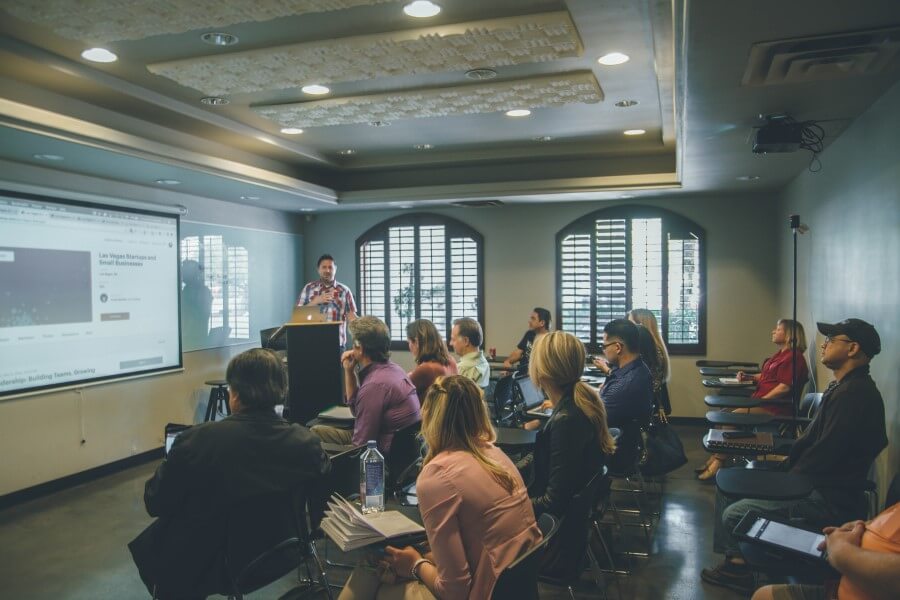
In this blog, Dr Abigail Taylor discusses her new report “Skills System International Case Studies” which identifies the key features and challenges of different international skills systems.
For the third paper resulting from my recent ESRC-funded secondment to the Industrial Strategy Council, I produced case studies of the post-compulsory education systems in Canada, France, Japan, the Netherlands and Sweden. Specifically, I looked at further education, higher education, adult education, and apprenticeships in each country in order to identify successful aspects of the different systems and provide policy learning which is relevant to the United Kingdom.
Each case study begins with a series of metrics comparing the performance of the country’s skills system to that of the UK. The metrics used enable comparison across the countries in terms of choice, extent of employer involvement, flexibility, inclusivity, and uptake across the lifetime. In addition to the metrics, each case study includes analysis of key features of the skills system and key skills challenges in the country as well as notable policy initiatives.
Producing the case studies emphasised key differences between the UK’s skills system and those internationally. Whilst the case studies were produced before the Covid-19 crisis began, they offer insights for how the UK system could potentially be reformed in response to longer working lives and rapidly changing skills demands in the context of technological developments such as automation, digitisation and AI. Such trends have been accentuated by the Covid-19 pandemic.
- Many of the skills systems profiled appear to be more flexible than systems in the UK.
In the Netherlands, two integrated pathways exist within the Vocational Education and Training system which allow for flexibility according to the state of the economy and the level of employer demand. France has promoted uptake of lifelong learning through personal training accounts which enable individuals to undertake vocational training that is funded by social partners or employers, while employees can receive their full salary. Flexibility is important for successfully aligning learning systems with changing skills needs in terms of the future state of the economy and employer demand, as well as providing training that is attractive to individuals. As the UK seeks to build resilience and recover from the impact of the Covid-19 crisis, this has even more importance.

- Greater policy stability internationally
Whilst each country profiled has introduced new policies over recent years, none of the changes have been as wide-ranging or frequent as policy changes that have occurred in the UK where in addition to “frequent and on-going institutional change”, key policy changes have involved the introduction of an Apprenticeship Levy and the expansion of apprenticeships particularly at higher levels. Policy stability has been shown to be a particularly important factor behind the success of the Second Chance training schools in France, developed to provide personalised training for 16-25 year olds with severe challenges finding work. Support lasts a minimum of 6 months and is provided through Training, Business and Social Hubs. Students follow individualised learning paths tailored to their needs (e.g. someone aiming for a career as a kitchen assistant will focus on measurements). The programme provides strong links to business with classroom-based learning alternated with time in the business world (40%). Students receive a certificate of acquired learning academic and practical skills). Successive French governments have recognised the added value of the concept contributing to their success across France.[1]
- Prioritisation of holistic support
The value of holistic support in moving disadvantaged, young people into employment and raising skills levels has been emphasised in both France and the Netherlands. Both countries have developed programmes which integrate holistic support combining work experience, education and training, housing and coaching. Whilst examples of more holistic support exist in the UK (for example, the work of the Learning Hub at University Hospitals Birmingham and the West Midlands Connecting Communities employment support programme), it is not the norm.

- Strong partnerships within the skills system
The most successful skills systems profiled feature strong partnerships between the State, education providers, and businesses and, in many cases, social partners. France, the Netherlands, Japan, and Sweden have introduced initiatives to promote uptake of lifelong learning and closer collaboration between business and education. Sweden demonstrates how such collaborations can be strengthened in a relatively short period of time. Our report emphasises how closer collaboration between business and education can be supported through increased opportunities for providers to work with business, improved training for trainers and mentors, and the establishment of technical colleges. Analysis of systems in Canada and France shows how sector councils can play a role in anticipating skill needs within and across sectors and using sector-specific knowledge to develop recommendations for education and training. France indicates how employers’ organisations and trade unions can take a leading role in funding sector councils and highlights how without significant levels of state funding, sector councils can lack visibility and sufficient resources to fulfil their roles effectively. More broadly, it is important that employers, particularly large employers, take ownership and provide leadership in terms of providing training opportunities directly linked to jobs.
Full reports and project details
Dr Abigail Taylor and Professor Anne Green have published three reports following Abigail’s ESRC-funded secondment to the Industrial Strategy Council. The projects examine the challenges facing the UK’s skill system, employers’ perspectives on skills and training, and how the UK can learn from successful international skills systems. Find out more about the project.
Taylor, A. (2020). Skills System International Case Studies, City-REDI, University of Birmingham – Download and view the full report
Green A. and Taylor A. (2020) Workplace Perspectives on Skills, City-REDI, University of Birmingham – Download and view the full report
These reports accompany an overview report published by the Industrial Strategy Council: Lyons H, Taylor A and Green A (2020), Rising to the UK’s Skills Challenges, Industrial Strategy Council – Download and view the full report
[1] Recotillet, I. and Werquin, P. (2017). Creating ‘Second Chance’ Opportunities for Young People. The French Écoles de la Deuxième Chance. In: IPPR ‘Making Inclusion Work: Reaching disenfranchised groups through work-based learning’; Réseau E2C. (2019). Le Réseau des Écoles de La 2ᵉ Chance. Cedefop. (no date given). Second chance schools – France.
This blog was written by Dr Abigail Taylor, Research Fellow, City-REDI / WM REDI, University of Birmingham.
To sign up for our blog mailing list, please click here.
Disclaimer:
The views expressed in this analysis post are those of the authors and not necessarily those of City-REDI / WM REDI or the University of Birmingham
